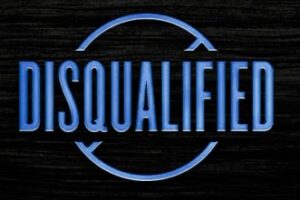
The applicable case law and test for the appointment and removal of committee or litigation guardian of a patient’s estate is the Supreme Court of Canada decision of Gronnerud v Gronnerud (2002) 2 SCR 417, which essentially was a useful statement of the parens patriae jurisdiction of the court in the best interests of the patient.
In that decision, the litigation guardians were removed on the basis that the guardians were in a conflict of interest towards the dependent adult. There was also an added element of acrimony or a high level of conflict between the guardians in the opposite parties in the litigation, which was found to amount to a conflict of interest.
In Gronnerud , the court stated evidence must demonstrate that the litigation Guardian is both qualified and prepared to act, and in addition is indifferent as to the outcome of the proceedings.
The third criterion, that of indifference to the result of the legal proceedings, essentially means that the litigation Guardian cannot possess a conflict of interest with respect to the interests of the disabled person.
Indifference by a litigation Guardian requires that the Guardian be capable of providing a neutral, unbiased assessment of the legal situation of the dependent adult and offering an unclouded opinion as to the appropriate course of action.
In essence the requirement of indifference on the part of a litigation Guardian is a prerequisite for ensuring the protection of the best interests of the dependent adult. A litigation Guardian who does not have a personal interest in the outcome of the litigation will be able to keep the best interests of the dependent adult front and center, while making decisions on his or her behalf. Given the primary of protecting the best interests of disabled persons, it is appropriate to require such disinterest on the part of a litigation Guardian.
It is acceptable in most cases, and perhaps desirable and some cases, to have a trusted family member or a person with close ties to the dependent adult act as litigation Guardian.
There are, however, exceptions, such as in the situation where there is a particularly acrimonious and long-standing dispute among the children concerning their dead parent’s estate. In such cases, the indifference required to be litigation Guardian is clearly absence.
Essentially the same criteria for the removal of a litigation Guardian is the same as in the case of removal of a committee. See Re Poon 2005 BCSC 254.
The requirement that the property Guardian not be in conflict of interest is a proxy for ensuring that the property Guardian protect the best interests of the dependent adult. Similar to the requirement the litigation Guardian be indifferent, at minimum, a property guardian must be able to handle the finances of the represented party in a disinterest, unbiased manner.
Although the statute is clear in stating that being a family member or potential beneficiary is insufficient by itself to prove a disqualifying conflict, in some cases, a family members or potential beneficiaries, there is evidence of other factors indicating a lack of objectivity. It is the unusual case where a family member or potential beneficiary in a troubled estate can demonstrate an absence of conflict and bus act as property Guardian.




